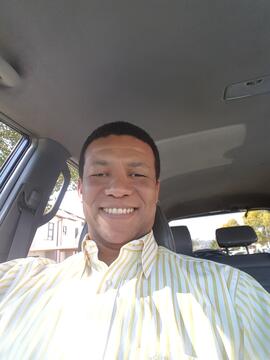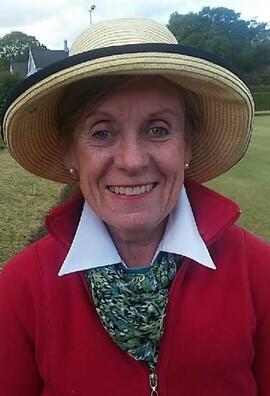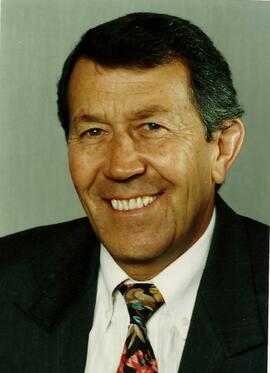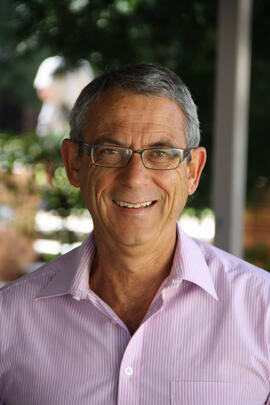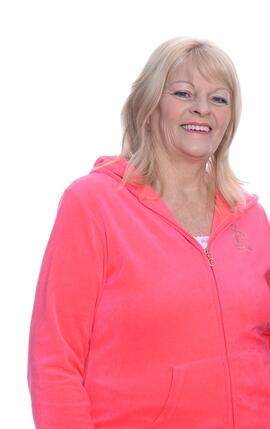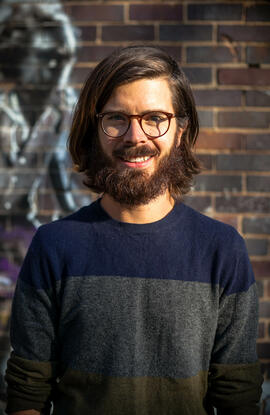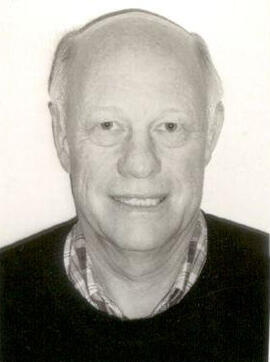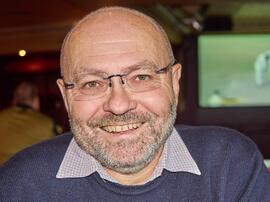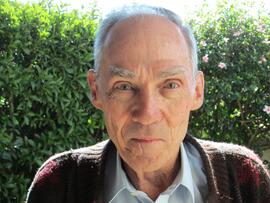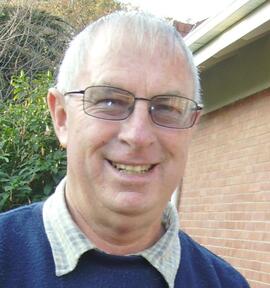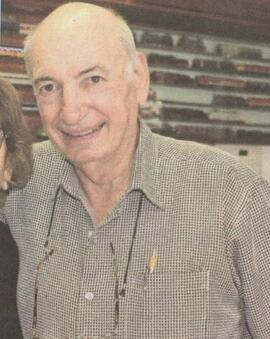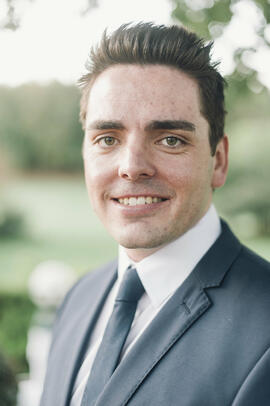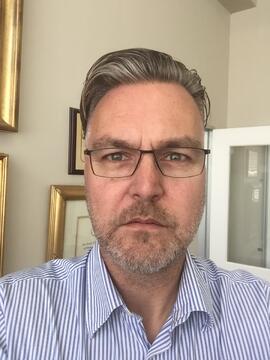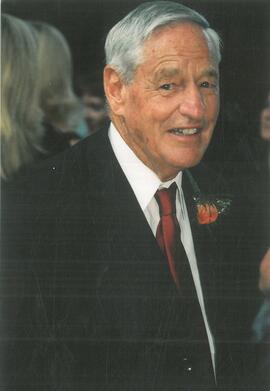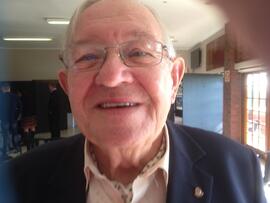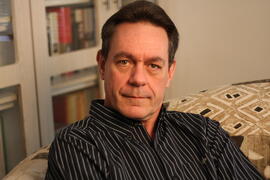Interview with John Slaven – 1979
John came to St David’s in standard 1 and recalled his first day, assembled in the quad
where the chapel now stands, in his new school uniform and Mrs Watson was his teacher.
His classroom was in the current CEO’s house.
John came from Northcliff Primary and had not been taught cursive writing and was only
used to using a pencil, he battled but learnt by watching the other boys. Mrs Watson was a
fierce teacher, there was no nurturing and he was one a very few new boys.
John enjoyed being a day boy and having his own space at home, however his older brother
Andrew would have loved to have been a boarder. He was a great sportsman and would
have benefited from all the training before and after school and at weekends. John initially
took the bus to school but eventually sometimes cycled.
John remembered Br Anthony who maintained a good balance with discipline. Br Timothy
however had a fierce temper and didn’t have the same presence as Br Anthony. John liked
Br Timothy but thought he was very isolated and under pressure from the board of
governors. The board was very distant to the school which John’s father realised when he
joined the board after his sons had left the school.
John played sport all the way through school but was not good enough for the soccer team
in primary school. He played cricket mostly for the 2nd’s which he enjoyed as he had the
chance to participate more, to bat and bowl more often than he did in the 1st team in his
matric year. Although he didn’t think his cricket was that great he was elected captain of the
2nd team cricket. John also played rugby starting in the U12 team which competed against
other schools as the U13C’s and managed to beat everyone. This team remained intact and
continued to win through to the U15’s. It was a special team with Brian Walter, centre, an
American, who was big and fast (he left in 1977), and Mike Peel, scrum half. Rugby was like
a religion in the school and early on Monday mornings Br Timothy would put up an
assessment of the weekend’s games and would give players stars 1 – 5 for their
performance. The whole school could see this and Br Timothy didn’t hold back with his
comments. Andrew Driver was an exchange student from the UK, a good athlete and rugby
player, winger, who stayed with David Kalk. John was best man at David’s wedding and
David’s son is his godson.
From standard 9 to matric, John played 1st team rugby and was made captain and rugby
player of the year. Losing to KES 2nd team in 1978 was a huge blow. Peter Swanson
(Springbok) was their rugby coach for a while and, before a game against Observatory he
brought along his Springbok blazer and motivated the team, he was a great inspiration. John
also played water polo occasionally for the A team, he wasn’t great but enjoyed it.
The annual inter-house gala was a great evening event with the boys shouting their war
cries, with their rosettes and decorations spurring on their respective teams. Cross country
was really more of a road run in those days.
John’s brother Geoff was an equestrian and went with the school team to Heddingly, he was
a top horse rider for a year or two.
John also joined in the cultural aspect of the school and played the role of “Herod” in the
school play “The Business of Good Government”.
The matric dance was always the highlight of the year. The boys were given a week off to
prepare the hall, coping with all the designs and implementation. They organised everything,
the invitations, table decorations, photographers, the theme being “Gangsters”. The boys
worked all day and then went to the Spur for supper and came back to continue. On the
Saturday night there was a band, the girlfriends and the food and drink. It was such a fun
week and only for the matrics and the standard 9, 1st team rugby.
There were some good teachers who really stood out – Mr Lipschitz, Maths who became
more of a friend, almost like a big brother who managed to make his subject interesting. Bill
Carew, standard 7 -8, Science, he was fantastic, able to explain things and had a way that
fascinated the boys. He once took them on a field expedition to the Northern Transvaal. Mrs
Landau taught Biology and although she had a more formal relationship with the boys, she
made this subject interesting and it eventually became John’s best and favourite subject.
Mrs Napier, standard 2 was very strict but also friendly but the boys knew their boundaries.
She once caught John cribbing and gave him a caning with her heavy ruler..
John went on a couple of camps, hiking in the Eastern Transvaal where they stayed in
hostels overnight. Ben Claasens, the Afrikaans teacher had a farm near Krugersdorp with a
dam and horses and he ran a camp for a week for the boys to get an Afrikaans immersion.
There were no outreach programmes in John’s time.
Academically John did well and was first in his class (27 in matric) most of the time and, for
his matric he achieved 5 distinctions. John participated in debating, senior best speakers,
was managing director of the stock exchange game, was in the athletics team. Captain of
Osmond house was elected head prefect and awarded scrolls for merit, studies, debating
and rugby. He was awarded an honours blazer and academic tie, Brother Pius Medals for
Biology and Physical Science and won the Osmond Cup for Leadership.
However, John says he was no angel and often got into trouble and on one occasion in
matric Br Timothy decided he needed to go home for a few days.
On leaving school, John studied Mechanical Engineering at UCT, followed by 2 years
national service in the navy. He became officer in charge of materials with a laboratory in
Simonstown and was the top naval officer candidate. He then went on to work for De Beers,
Industrial Diamond Division for 4 years as they had given him a bursary whilst at UCT. He
then went to the Harvard Business School to do his MBA afterwards joining Boston
Consulting Group for 10 years becoming a partner He then joined Alcoa in New York for 3
years and a year in China, followed by an appointment with BHP Billiton for whom he has
worked in Melbourne, Perth Australia and is currently vice president business development,
minerals exploration based in Singapore and about to move to Perth. John led BHP Billiton
sustainability function with extensive programmes to improve long term sustainability of
aboriginal groups,
John is married with 3 daughters.
John is a member of MOBS and would be more than happy to address an assembly on one
of his business trips to South Africa.
JLE June 2013

